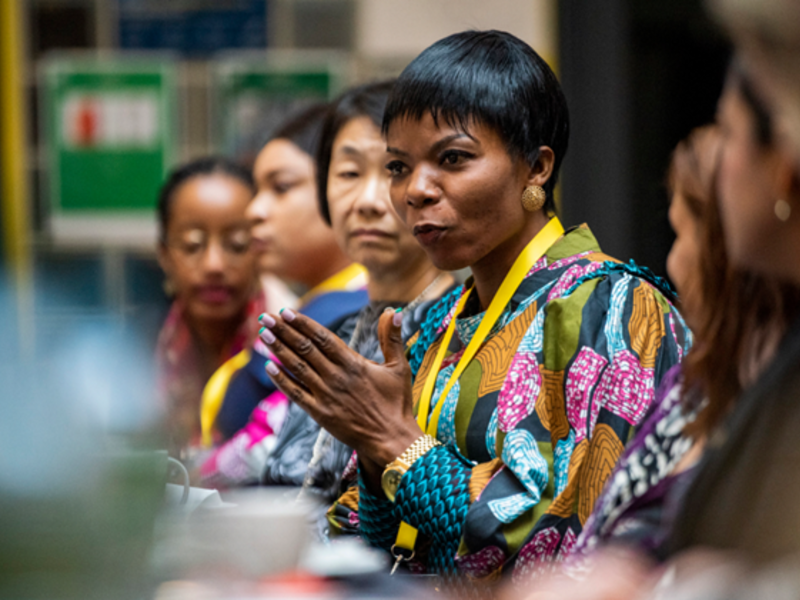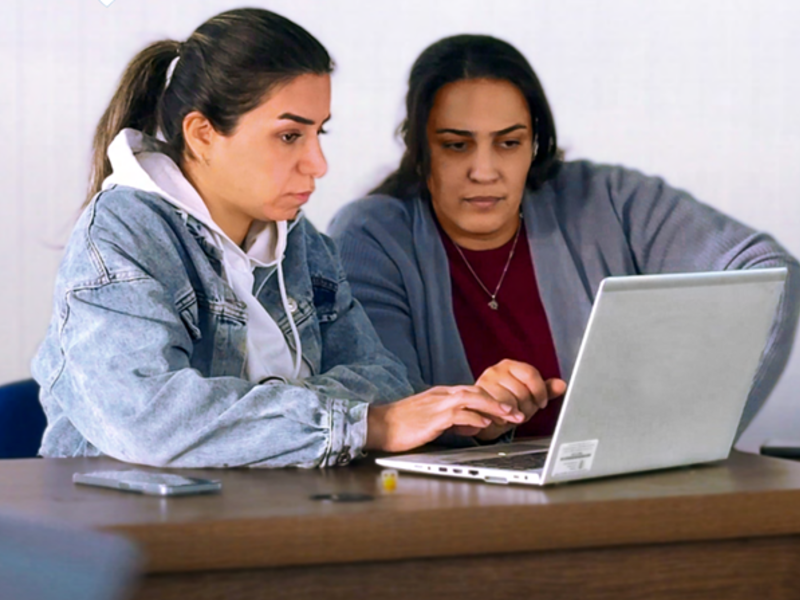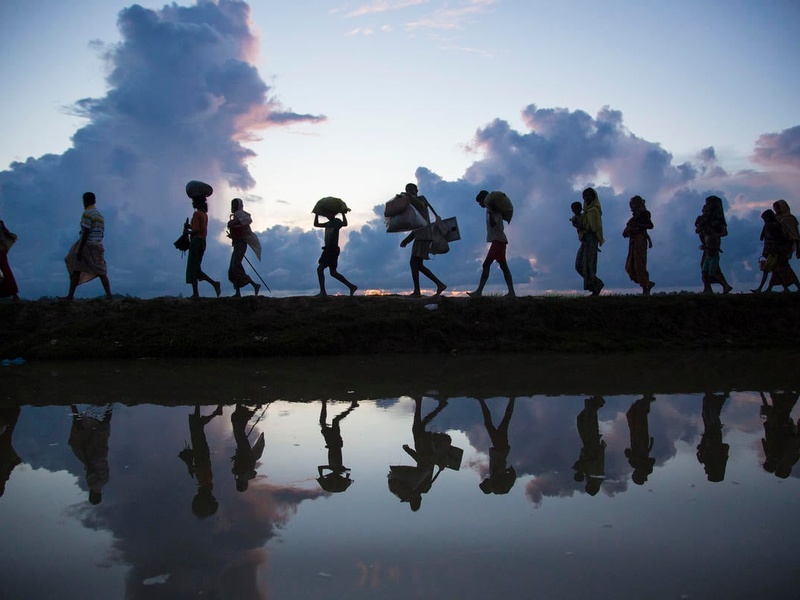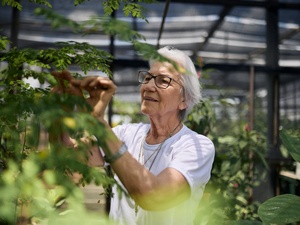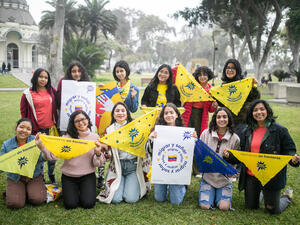Women
Women
UNHCR works to prevent this by ensuring fair aid distribution, access to safe shelters and facilities, and helping displaced and stateless women overcome barriers to education and employment.

In times of displacement, this problem escalates. Women and girls make up around 50 per cent of any refugee, internally displaced or stateless population, and those who are unaccompanied, pregnant, heads of households, disabled or elderly are especially vulnerable.
At UNHCR, we work hard to ease their struggle, ensuring safe shelters offering privacy, construction or maintenance assistance, fair food distribution systems, and separate sanitation facilities. We also manage programmes that help women to improve their leadership skills, overcome barriers to education, and access opportunities.
Our work builds upon women’s own resilience and strength and helps them improve their lives, as well as those of their children, families and communities, every single day.
Who we work with
UNHCR is just one of many organizations working around the world to help displaced and stateless women and girls.
To strengthen the inclusion of gender equality at the institutional and global levels, UNHCR works with an array of partners and participates in various forums, including the IASC Gender Reference Group, the GenCap Advisory Group, and the Inter-Agency Network on Gender and Women’s Empowerment (IANGWE).
Forcibly displaced women are often the first responders in conflict or crisis settings but are significantly underrepresented in peacebuilding and formal peace processes. UNHCR is committed to the Women, Peace and Security agenda and works to dismantle barriers to the equal and meaningful participation of forcibly displaced and stateless women and girls, including through partnerships, inter-agency processes as well as board memberships in the Compact on Women, Peace and Security and Humanitarian Action and the Women's Peace and Humanitarian Fund.
Gender equality is a cross-cutting priority in the implementation of the Global Compact on Refugees (GCR). UNHCR collaborates with a wide range of stakeholders, including States and women-led organizations (WLOs), to advance the Multi-stakeholder pledge on gender equality and protection from gender-based violence.
How UNHCR supports localization and engagement with women-led organizations
In 2024, UNHCR partnered with 255 women-led organizations (WLOs) – primarily local women’s groups – representing 18% of all UNHCR-funded partners.
These partnerships accounted for 15% of the total funding provided to partners, amounting to over USD 186.1 million. More than USD 2 million was allocated through grant agreements, with 20% of those recipients – around 50 partners – self-identifying as WLOs.
UNHCR policy
- UNHCR's Policy on Age, Gender and Diversity (AGD)
- UNHCR Policy on the Prevention of, Risk Mitigation and Response to Gender-based Violence
- UNHCR's 2023-2025 Strategy and Action Plan: Tackling sexual exploitation and abuse and sexual harassment
- UNHCR's Age, Gender and Diversity Accountability Report 2023
Recent publications and highlights
Bridging the digital gender divide
UNHCR's good practices
- Promising practices: Harnessing the power of organizations led by forcibly displaced and stateless women (2025)
- Gender equality promising and emerging practices: From inspiration to implementation (2023)
- Learning from Experience and Seizing Opportunities: UNHCR and partner practices in advancing gender equality in sub-Saharan Africa (2021)
- UNHCR Gender Equality Promising Practices: Syrian Refugees in the Middle East and North Africa (2017)
- Learning from experience to advance gender equality - promising practices in Asia (2017)
Handbooks and other resources
- UNHCR's Commitment to Gender Equality
- From 1975 to 2013: UNHCR's Gender Equality Chronology
- IASC Gender Handbook in Humanitarian Action
- UNHCR Handbook for the Protection of Women and Girls
- UNHCR Gender Training Kit on Refugee Protection and Resource Handbook
- Refworld's special feature on Gender Equality and Women
- Tearing down the walls – Confronting the barriers to internally displaced women and girls' participation in humanitarian settings
Publications
- Background Note on Gender Equality, Nationality Laws and Statelessness (2025)
- Background Note on Gender Equality, Nationality Laws and Statelessness (2024)
- Background Note on Gender Equality, Nationality Laws and Statelessness (2023)
- Gender, Displacement and Climate Change Factsheet (2022)
- Protection Forcibly Displaced Women and Girls During the COVID-19 Pandemic (2021)
- Protecting Forcibly Displaced Women and Girls during the COVID-19 Pandemic (2020)
- Refugee girls' education (2018)
- Cash Assistance and Gender – Key Considerations and Learning (2018)
Gender audits
- Gender Audit of the 2020 High Commissioner's Dialogue on Protection Challenges: Protection and Resilience during Pandemics
- Combined Gender Audit Report of the Five meetings comprising the 2020 High Commissioners Dialogue on Protection Challenges: Protection and Resilience during pandemics and the 2020 NGO Consultations
- Gender Audit of the 2019 Global Refugee Forum
- Gender Audit of the Meetings in Preparation for the 2019 Global Refugee Forum
- 2017 Gender Audit Report on the Second and Third Thematic Discussion on the Global Compact on Refugees



